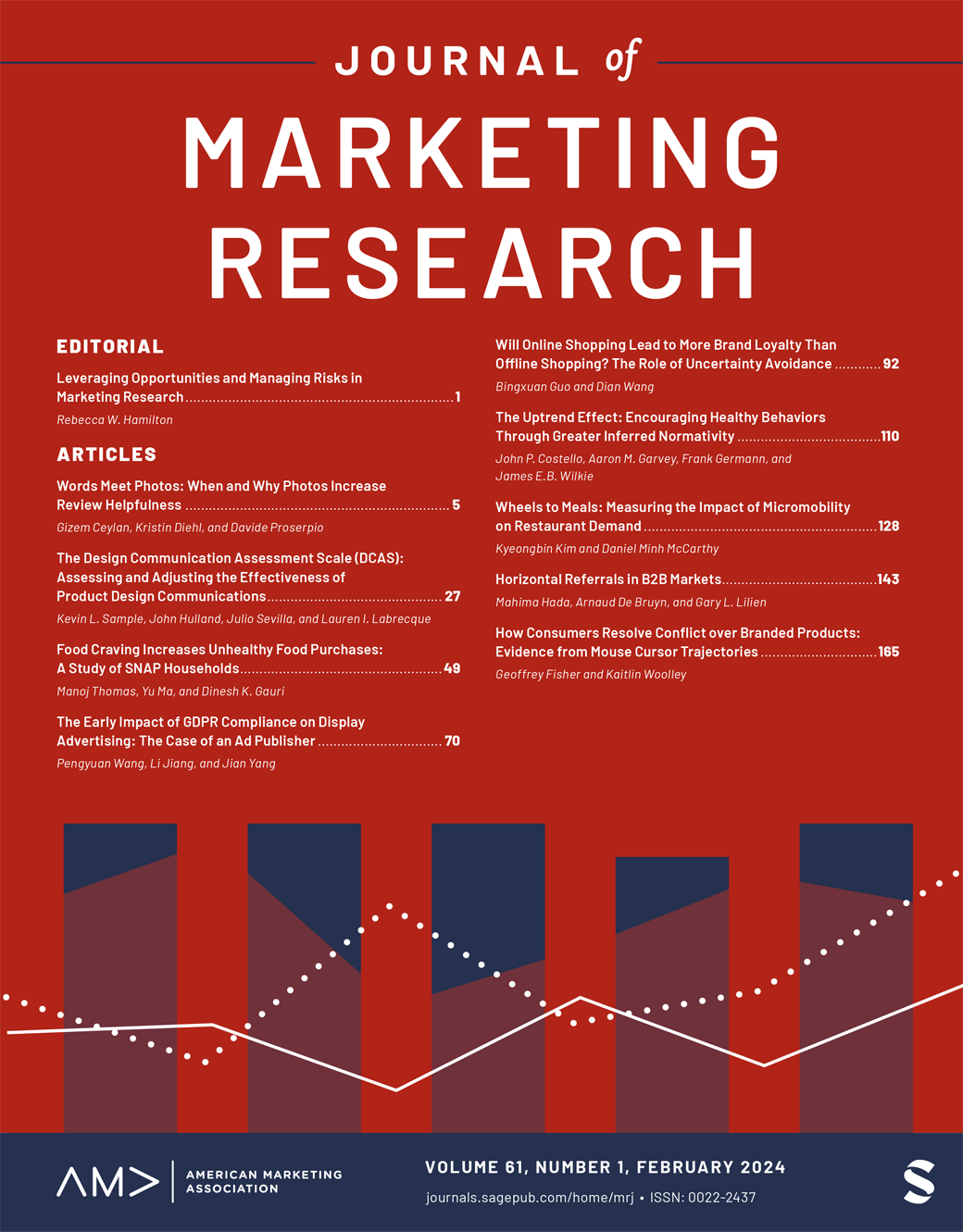EXPRESS:沉没成本效应、自我控制与合同设计
IF 5
1区 管理学
Q1 BUSINESS
引用次数: 0
摘要
本文考察了沉没成本效应作为一种承诺机制在缓解企业自我控制问题中的作用,并分析了其对最优契约设计的启示。消费者可能会事先预料到这种影响,并有策略地利用它来减轻他们的自我控制问题。沉没成本效应在消费成本高的情况下可能导致消费灵活性的丧失,但它可以作为一种承诺手段来加强自我控制。企业的最优政策应该平衡消费者对消费灵活性的需求和对承诺的需求。在简单固定费用契约下,沉没成本对投资品的利润具有非单调效应,即随着沉没成本效应,利润先减少后增加。企业可以使用两部分关税或可退还的固定费用合同来减轻沉没成本效应。本文还比较了沉没成本效应(基于后悔和基于记忆线索)背后的不同心理机制对契约设计的影响。本文章由计算机程序翻译,如有差异,请以英文原文为准。
EXPRESS: Sunk Cost Effect, Self-control, and Contract Design
This paper examines the role of the sunk cost effect as a commitment device in mitigating the self-control problem and analyzes its implications for optimal contract design. Consumers may anticipate the effect ex-ante, and strategically use it to mitigate their self-control problems. While the sunk cost effect may lead to a loss of consumption flexibility in the event of high consumption costs, it can serve as a commitment device to enforce self-control. A firm’s optimal policy should balance the consumer’s demand for flexibility in consumption with the demand for commitment. Under a simple fixed-fee contract sunk costs have a non-monotonic effect on profits for investment goods: i.e., profits first decrease and then increase with the sunk cost effect. The firm can use a two-part tariff or a refundable fixed-fee contract to mitigate the sunk cost effect. This paper also compares the implications of alternative psychological mechanisms underlying the sunk cost effect (regret-based vs. memory-cue-based) for contract design.
求助全文
通过发布文献求助,成功后即可免费获取论文全文。
去求助
来源期刊

Journal of Marketing Research
BUSINESS-
CiteScore
10.30
自引率
6.60%
发文量
79
期刊介绍:
JMR is written for those academics and practitioners of marketing research who need to be in the forefront of the profession and in possession of the industry"s cutting-edge information. JMR publishes articles representing the entire spectrum of research in marketing. The editorial content is peer-reviewed by an expert panel of leading academics. Articles address the concepts, methods, and applications of marketing research that present new techniques for solving marketing problems; contribute to marketing knowledge based on the use of experimental, descriptive, or analytical techniques; and review and comment on the developments and concepts in related fields that have a bearing on the research industry and its practices.
 求助内容:
求助内容: 应助结果提醒方式:
应助结果提醒方式:


